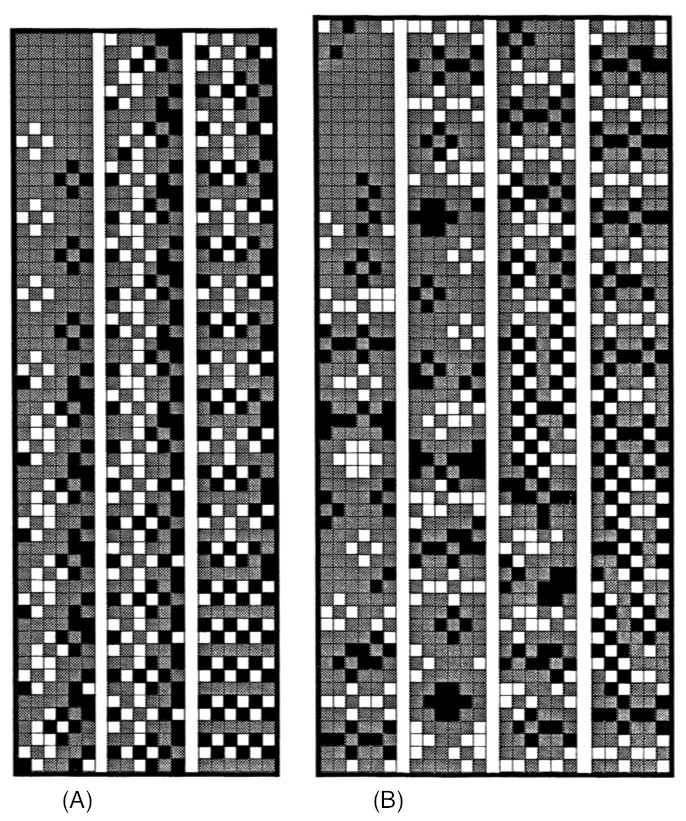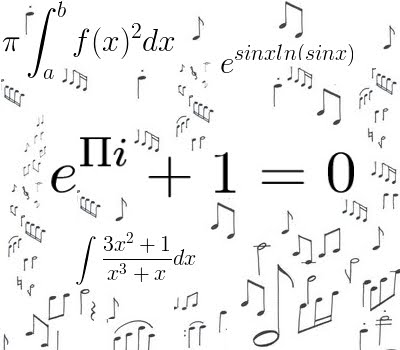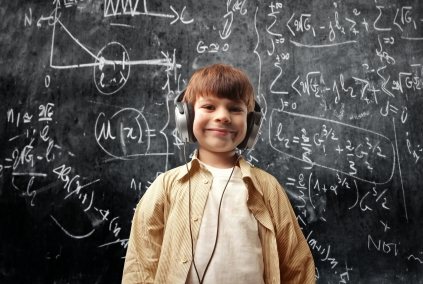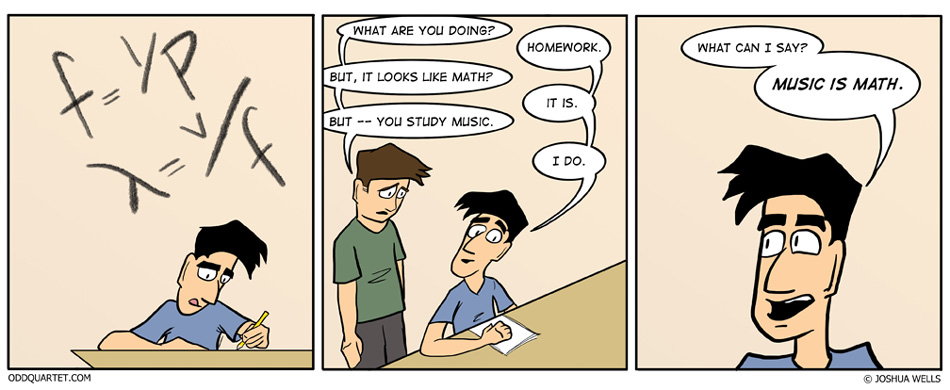Ever wonder how music is related to mathematics, in the way that our brain interprets the two? Or, how learning to play a musical instrument can actually raise brain function/development to influence mathematical talent? If so, then you are not alone in considering such questions.
Ever since the 16th century, many mathematicians, musicians, physicians, and even philosophers have studied thoroughly the relationship between music and mathematics, and proposed theories of how these two completely different subjects interrelate. According to Rings (2008), mathematics is the subject that consists of formulae, deep analytical thinking, and concrete materials that provide support for science, whereas music is a subject of poetry and emotion, and a centric part of the arts. Music, as a mathematical description, is the manifestation of numbers and complex functions within the Pythagorean universe and algebraic systems, where each note of a piano produces a specific sound that contributes to different graphical representations (Padula, 2005).
Although music can be described mathematically, learning music and mathematics (separately) develops a unique part of the brain (Brothers et al., 1993). The cerebral cortex, is the structure responsible for pattern recognition and memory development; both music and mathematics are simply branches of pattern – such patterns are developed within the cerebral cortex (Mountcastle, 1978). Furthermore, Boettcher et al. (1994) found that both mathematics and music are branches of pattern that are developed in the brain. With respect to music, within a columnar network of trions, they found that the patterns always formed a “creative” pattern that consisted of “broken” symmetry. With respect to mathematics however, the patterns always formed an “analytic” pattern with a high degree of symmetry; musical patterns changed with different levels of harmony, melody, and rhythm while mathematical patterns remained consistent. Such patterns, according to Boettcher et al., trigger the development of a unique portion of the brain.

Patterns developed in (A) a “analytical” brain, and (B) a “creative” brain.
Source: Boettcher et. al (1994)
Moreover, other studies show that playing a musical instrument can enhance mathematical ability. According to Hyde et al. (2009), musical training in young children causes significant brain development than children without any musical training. Such brain developments, they describe, are due to behavioural changes that are created during long-term musical training rather than simple developments due to age. In other words, Hyde et al. describe that brain development is due to nurture rather than nature.
Mathematical skill is increased in higher age groups due to practicing music just as it is increased in children. For example, Vaughn (2000) found that individuals (in college and universities, specifically) who voluntarily choose to study music show a significantly higher mathematical achievement than those individuals who do not take any musical courses. According to Vaughn, many students who choose to take a course in music score much higher in the mathematics portion of the SAT and university- or college-level math courses compared to other students without a music course. Furthermore, individuals exposed to a music curriculum in school also show higher mathematical achievement as a consequence of this music instruction.
Below is a video of James Stewart, the famous author of university-level calculus textbook, commenting on how mathematics and music relate.

In conclusion, learning how to play music by any form of instrument can play a key role in improving one’s mathematical skills.
Pedram Laghaei




3 responses to “The Relationship between Music and Mathematics with respect to Brain Function”